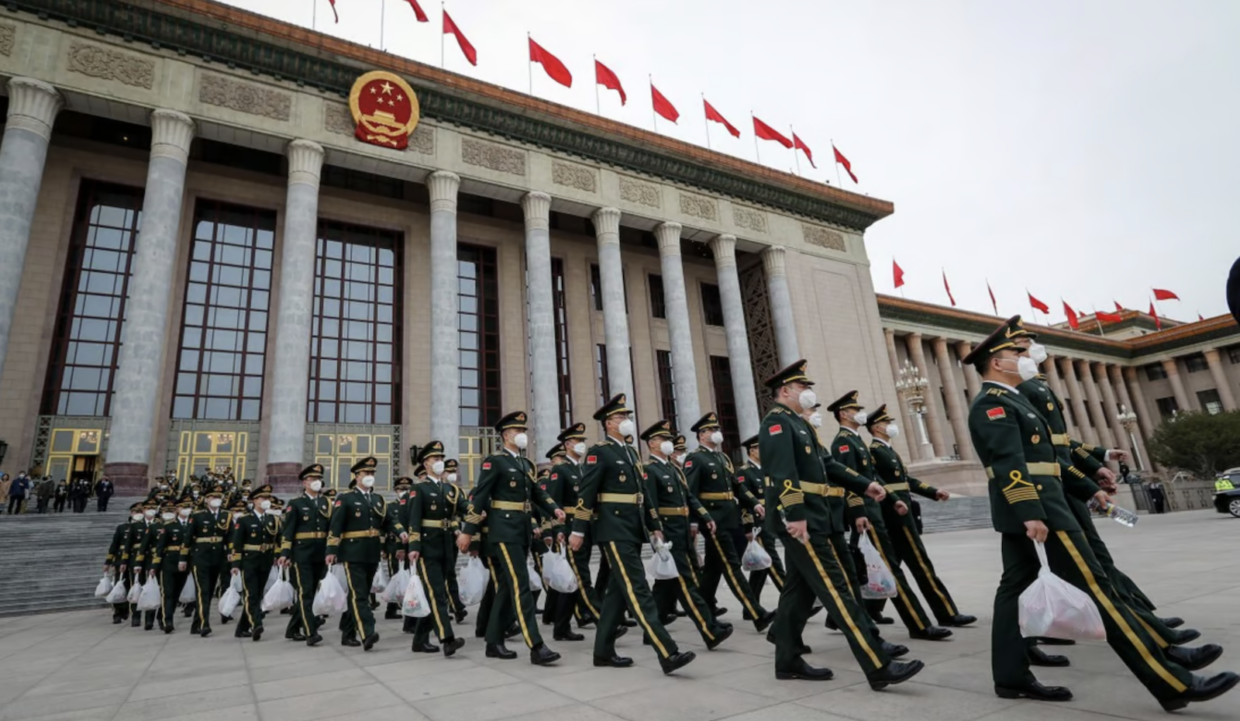China just concluded its most important annual political event, the plenary sessions of the National People’s Congress and the Chinese People’s Political Consultative Conference (CPPCC), commonly referred to as the Two Sessions. Notably, several legislators proposed new regulations for China’s metaverse and digital collectible sectors. Although it is uncertain whether these suggestions will become formal legislation, they still offer insight into what China’s next metaverse regulatory steps could be.
This year, the Two Sessions recognized the economic potential of the metaverse. The government work report pledges that it will “dedicate great effort to developing the digital economy.” Meanwhile, Jin Zhuanglong, the head of China’s Ministry of Industry and Information Technology, also explicitly mentioned that China will proactively invest in its metaverse industry during a press conference before the Two Sessions.
Migu, the digital content arm of China’s telecommunication giant China Mobile, also created a “Two Sessions Metaverse” that featured a digital reporter stationed in the digitally-recreated Great Hall of the People and allowed residents from Xiamen’s Kulangsu area to virtually interact with their delegate. In late 2022, Migu signed an agreement to digitally promote Xiamen’s tourism and cultural IPs.
However, some legislators also expressed concerns about the unregulated growth of the metaverse in China. This position is well-reflected in remarks by Wu Zhuangjie, a CPPCC delegate and legislator from Hong Kong. Wu stated that the nation should continue to support the development of metaverse technologies and infrastructure, but warned against its negative effects.
For instance, super-immersive gaming experiences could turn into “digital drugs” that can be exploited by criminals while new forms of Web3 social media could jeopardize China’s political stability. Therefore, China’s metaverse development should avoid “overtly concentrating on building virtual spaces for consumption” but should instead focus on integrating with the real economy.
Feng Qiya, a delegate from Shanghai, opined that China still lacks a coordinated, top-down digital collectible regulatory system. Feng’s key recommendation is to clearly define what constitutes a “digital collectible” by law and establish an “entry permit” system for digital collectible platforms. This would create a “white list” for institutions that had received approval to mint and sell digital collectibles, thus minimizing the financial risks associated with digital assets.
Overall, the proposals from the Two Sessions echo China’s already-existing approach to the metaverse, especially its rejection of the speculative, all-virtual metaverse. But with a new administration settling in upon the conclusion of the Two Sessions, the specific suggestions by the delegates might just be materialized into formal regulations.



